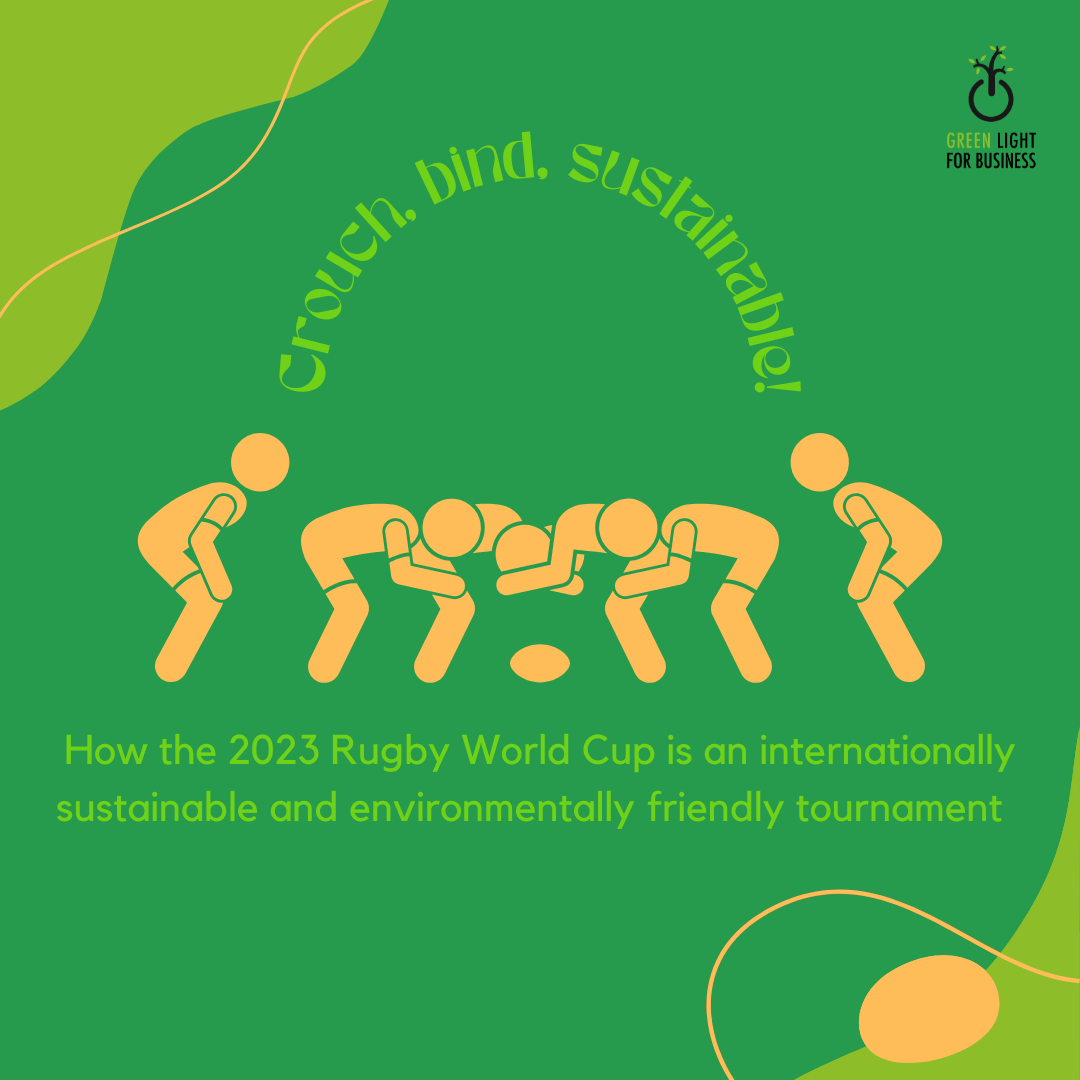For those who are big fans of sport, particularly rugby, you will know that currently the Rugby World Cup is reaching the final stages of the competition. However, what is less known while following the event is how it has tried to incorporate a sustainable and environmentally friendly competition where the sport can be played, but in a safe manner for all. The sustainability action plan includes inclusion of all members in society, encouraging positive climate action and supporting carbon reduction. More specifically, the tournament organisers have strongly been advocating for sustainable mobility for the teamplayers between venues and cities, with 83% of team travels occurring by train. Specifically in Marseille, there are many more bicycles and electric scooters which can be rented to travel to and from the stadium, while the metro provides a direct link between the city centre and the stadium.
France and World Rugby 2023 have agreed to use the international tournament as a platform to emphasise and strengthen the standards that take place at such a high level competition, with a particular focus on social responsibility, inclusion, and sustainable development. In terms of sustainable development the organisers refer to a sustainable and circular economy and lowering the influence on the environment. Some of the tasks which have been implemented at the World Cup include collecting cigarette butts and recycling of mobile phones at local clubs, and engaging the local communities in incentives such as food banks.
Even with all the encouraging components that the World Cup has taken to make the tournament as sustainable as possible, there are still some less encouraging elements that should be pointed out. For example, some of the biggest sponsors of the tournament are fossil fuels companies, which are not environmentally friendly and do not align with the aims of the event. The carbon footprint of the tournament is expected to be between 350 000 – 650 000 tons of CO2 which sounds concerning. However when put into perspective it does have a silver lining as this is 10 times less than the amount emitted at the Qatar World Cup in 2022. To end on a positive note however, the tournament has allocated €1 million to any residual carbon that may have been exceeded from the pre-competition calculation, for after the tournament’s completion.
Overall, the Rugby World Cup 2023 has put in a plan of action to make this international sporting event as sustainable as possible and hopefully pave the way for future international sporting events to use this framework in organising sustainable competitions worldwide.
By Radi Damianov
Sources:
https://www.rugbyworldcup.com/2023/sustainability https://www.rugbyworldcup.com/2023/positive-impact https://www.rugbyworldcup.com/2023/news/675216/france-2023-a-rugby-world-cup-with-a-positive-impact https://www.marseille-tourisme.com/en/rugby-world-cup-marseille-2023/a-sustainable-rugby-world-cup/ https://www.forbes.com/sites/vitascarosella/2023/09/01/rugby-world-cup-2023-how-environmentally-sustainable-will-it-be/?sh=402e71d1784b




